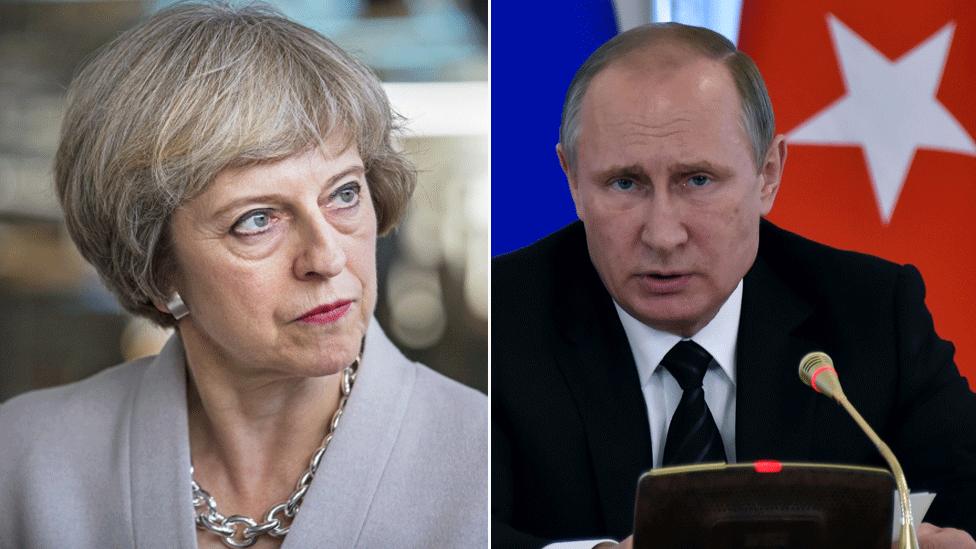G20: Theresa May faces Brexit trade pressure
- Published
President Obama: "The basic premise is that together we reaffirm the very special relationship between the US and the UK"
UK Prime Minister Theresa May has come under pressure at the G20 summit over Britain's trade links with the US and other countries after it leaves the EU.
President Obama said the US would prioritise trade negotiations with the EU and Pacific nations over a UK deal.
Japan has warned of "drastic changes" after Brexit and said the potentially "harmful effects" must be minimised.
But Mrs May has insisted that the UK can prosper outside the EU and become a "global leader in free trade".
Mrs May is also facing questions over Chinese investment in the UK ahead of a meeting with leader Xi Jinping later.
Asked whether she "trusted" the Chinese government - amid claims she is reviewing China's planned investment in a new nuclear reactor in Hinkley Point on security grounds - she said the UK "had a relationship" with China she wanted to build on.
While acknowledging that the UK had enjoyed a "golden era" in its relations with China under her predecessor David Cameron, Mrs May said there were a number of other countries that the UK wanted to develop trade links with.
'Open for business'
Her comments come amid reports that Australia could be the first country to sign a free trade agreement with the UK once it leaves the EU.
The two-day summit in Hangzhou is Mrs May's first opportunity to meet a number of international leaders since she became prime minister in July, in the wake of the UK's vote to quit the EU and David Cameron's subsequent resignation.

Analysis by James Landale, BBC diplomatic correspondent
The phrase "Brexit means Brexit" has seen the government through the summer, but has now reached the end of its usefulness.
It was designed to persuade doubting Remainers that the UK really will leave the EU, something Theresa May was once again forced to confirm during her news conference with President Obama here in China.
But over the months the slogan has inverted into something different, a symbol of the government's uncertainty about what Brexit will actually mean for our relationship with the EU. This lack of clarity reflects the divisions within ministerial ranks over what deal Britain should aim for. Read more from James

She has held talks with Mr Obama and Russian President Vladimir Putin among others at the meeting of the world's largest economies.
After their meeting, President Obama said the "special" relationship between the two countries remained strong despite Washington favouring the UK remaining in the EU and that the US would do everything to make sure Brexit did not affect this status.
The two leaders said their respective countries would begin a consultation on future trade links in the new landscape while Mr Obama played down his claim during the EU referendum that the UK would have to go to the "back of the queue" for trade talks.
BBC diplomatic correspondent James Landale said Mrs May's goal was to reassure other leaders that the UK was "open for business" and was a "dependable partner" but had received a number of "blunt" responses, including from Mr Obama, over Brexit.
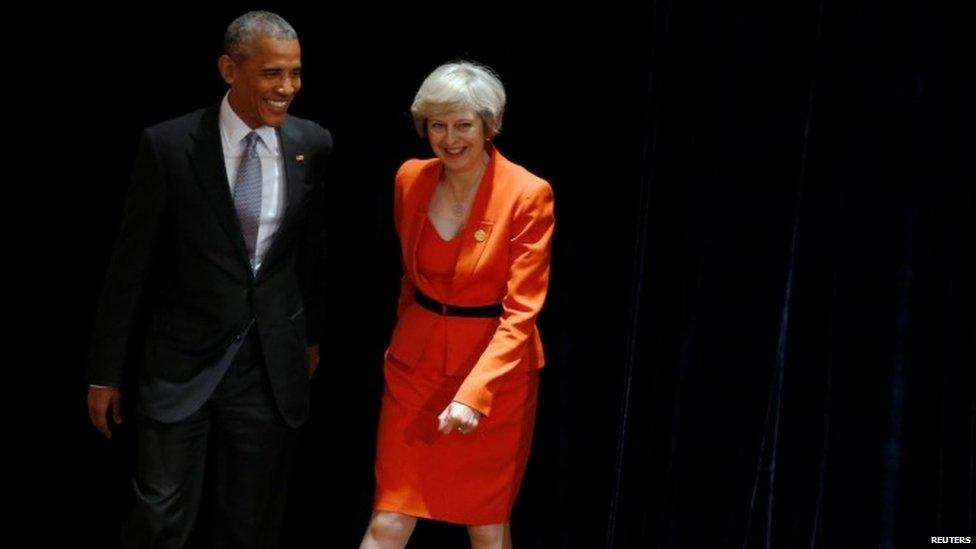
But US President Barack Obama said the UK wouldn't be prioritised in free trade talks
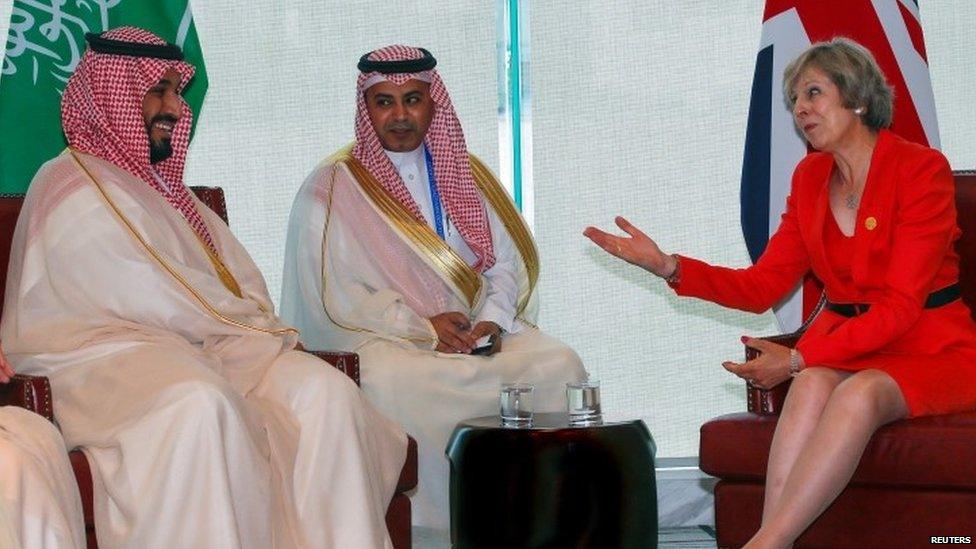
The two-day event is Mrs May's debut on the international stage
Ministers have insisted the UK's economic and diplomatic status will not be diminished and Brexit could actually enhance relations with countries beyond Europe.
But an official Japanese government briefing , externalhas warned of the repercussions for the thousands of people employed by Japanese car, finance and hi-tech firms in the UK and has sought assurances over continued access to the single market, tariff levels and other trade privileges.
"It is of great importance that the UK and the EU maintain market integrity and remain attractive destinations for businesses where free trade, unfettered investment and smooth financial transactions are ensured," the document said.
"In light of the fact that a number of Japanese businesses, invited by the government in some cases, have invested actively to the UK, which was seen to be a gateway to Europe... we strongly request that the UK will consider this fact seriously and respond in a responsible manner to minimise any harmful effects on these businesses."
China questions
Ahead of her meeting with the Chinese leader, Mrs May is facing questions over the future of plans to build a new nuclear power plant at Hinkley Point - underpinned by billions of pounds in Chinese investment - which are currently under review by the government amid reported concerns over cost and security.
Speaking to reporters, Mrs May said the Hinkley decision would be taken later this month and that the UK had a multi-faceted relationship with China.

Analysis by Laura Kuenssberg, BBC political editor
Perhaps the real difficulty for the now not so new prime minister is that the biggest demands on her abroad are the same as those at home. Other countries want more details of her plans for Britain's life after the EU.
But with no consensus, or anything like the details of post-Brexit Britain yet from government, there isn't that much that she can really tell them.
The political danger of such a relatively blank page is that others will fill the space. Read more from Laura

"We have seen significant Chinese investment into the United Kingdom," she said.
"What I want to do is build on that relationship, but I also want here at the G20 to be able to build on relationships with other countries. As I say I want the UK to be a global leader in free trade."
Our correspondent said this marked a notable change in the UK's tone towards China, from the stance of David Cameron and George Osborne who aggressively courted Beijing and had marketed the UK as China's "gateway to Europe".
Russian relations
Prime Minister Theresa May also said she wants a "frank and open relationship" with Russia during her first meeting with President Putin.
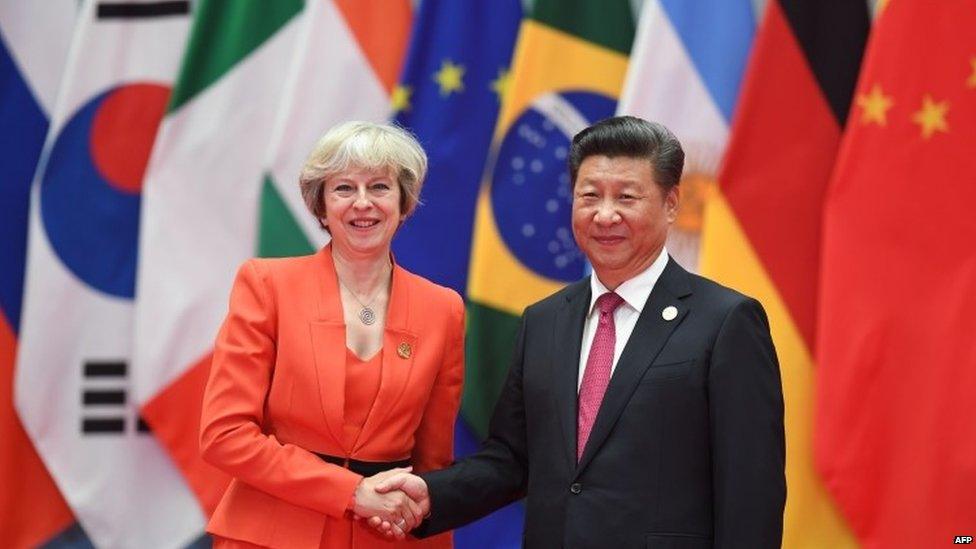
Mrs May says she wants to build on relations with China and be a leader in free trade
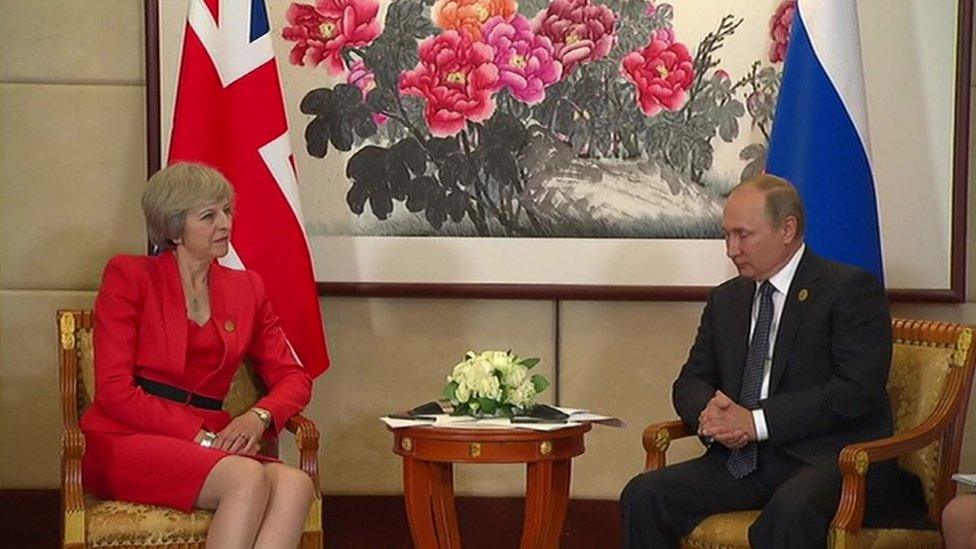
Mrs May told Vladimir Putin it would not be "business as usual" between the two nations
Relations between the UK and Russia have been strained, particularly following the UK inquiry which blamed the 2006 poisoning death of former spy Alexander Litvinenko on Russian agents and said it was "probably" approved by Mr Putin.
Other contentious topics have included Russia's support for the regime of Syrian President Bashar al-Assad, the annexation of Crimea and fighting in Ukraine.
Mrs May said she had urged the Russian leader to do all he could to end the indiscriminate bombing of civilians in Syria and allow aid convoys into cut-off areas.
Speaking more broadly about the future of Anglo-Russian relations, she said: "While I recognise there will be some differences between us, there are some complex and serious areas of concern and issues to discuss."
- Published4 September 2016
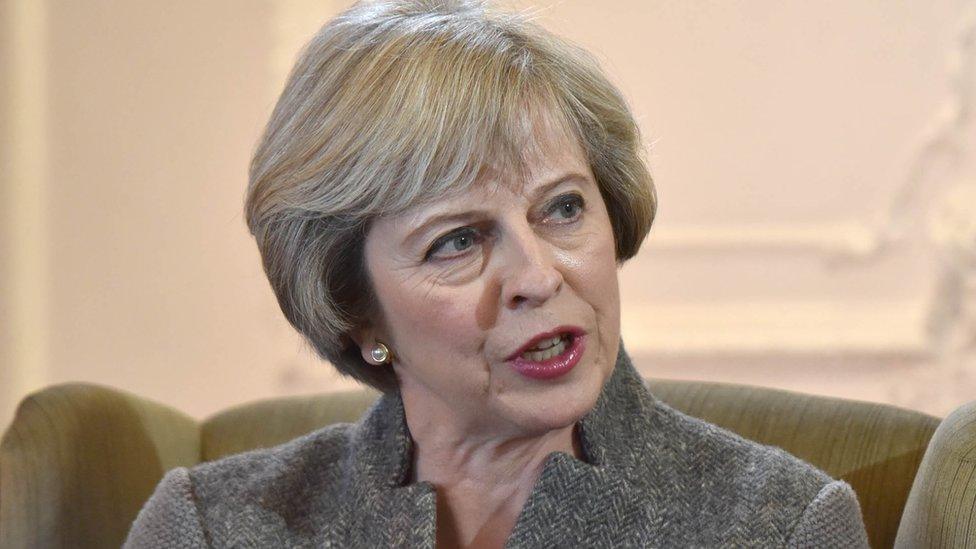
- Published4 September 2016
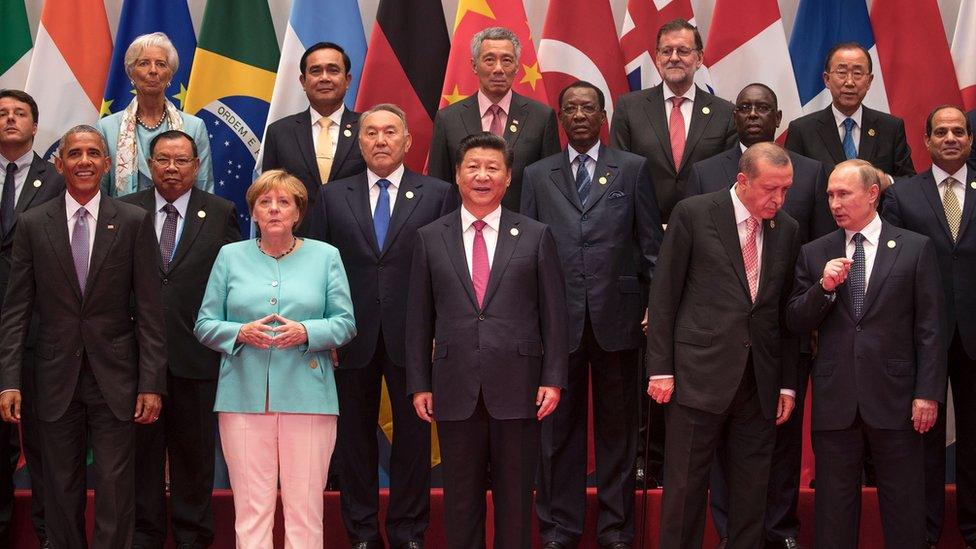
- Published2 September 2016
- Published10 August 2016
